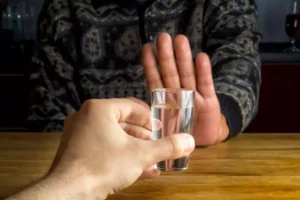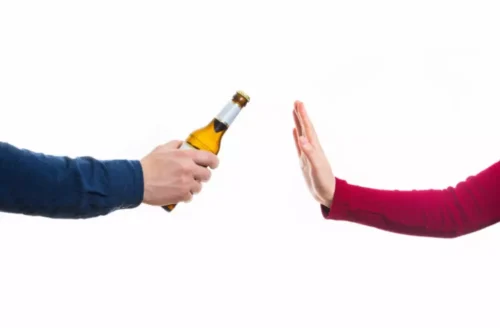In this case both diets were isoenergetic so this is not a surprising result, as the thermic effect of food was likely higher for white wine than grape juice [53, 54]. Finally, more recently, Cresci et al. [55] found that self-reported alcohol intake was not a significant predictor of success or failure in losing 5% of body weight during a 6-month weight loss intervention. While cross-sectional and longitudinal studies have controlled for a number of important lifestyle factors, there are many to consider when examining body weight regulation. It is highly likely that the paradoxical results seen in studies examining the effect of alcohol on weight gain and obesity are also the product of a multitude of factors beyond the individual’s ingestion habits.
The health risks of having a beer belly
If cortisol triggers our fight or flight response, it is logical to cue the body to stock up on the energy we get by eating. But not until your body is done with the alcohol and if you’re a heavy drinker, well, your body has only so much metabolic bandwidth. Assuming you haven’t had an overly sugary brand of vino, you’ve just consumed 318 additional calories. While cutting alcohol completely out of your diet isn’t necessarily the only way to lose weight, there are many improvements that can be made in your health journey by simply cutting back on the booze. Alcohol intake of all levels can lead to impaired digestion and absorption of these nutrients. This can greatly affect the metabolism of organs that play a role in weight management.
How long does alcohol bloating last?
One gram of alcohol contains 7.1 calories, and commonly consumed drinks can range from about 100 to 200-plus calories. However, despite your average drink’s seemingly significant calorie count, these beverages don’t contribute to weight gain as much as calorie-counting math suggests they should. So what should you do about alcohol consumption while on a diet? A common-sense approach is to drink very moderately, if consuming a very small amount of alcohol will make staying on the diet easier.
Factors that may Explain the Conflicting Findings between Alcohol Intake and body Weight
It has been examined across small and large cohorts, in many countries, across various ethnicities and age groups [4]. Within the large body of observational research, contradictory findings exist, which warrant further exploration [3•, 4]. Alcohol can also affect your digestion, nutrient intake, and fat-burning capabilities. Along with that, it can also disrupt sleep and testosterone production, increasing weight gain. It is not essential to abstain from alcohol to live a healthy lifestyle. For example, a glass of red wine with a meal is completely acceptable.
- When your body is using alcohol as a primary source of energy, the excess glucose and lipids end up, unfortunately for us, as adipose tissue, or fat.
- When you get hungry while drinking, consider having vegetables and water instead of high-calorie foods.
- A night out with several drinks can lead to consuming a few hundred extra calories.
- So while it may not be necessary to cut out drinking altogether, you may need to stop binge-drinking entirely if you’re hoping to lose weight, prevent alcohol bloating and start a healthier lifestyle.
- Some evidence suggests that eliminating alcohol among people who drink heavily helps control weight.
- Drinking can raise your heart rate and speed up your metabolism, Rimm explains, offsetting some of the calories consumed in the drink.
If bloating after drinking becomes a problem, there may be ways to either get rid of it or avoid it in the first place. Add all of this together and it’s easy to see how drinking heavily can cause you to gain weight over time. That doesn’t mean you have to totally swear off alcohol does alcohol make you gain weight if you want to lose weight—you just need to be smart about drinking. “The extra calories from moderate drinking (one serving of alcohol for women a day or two servings for men per day) can certainly fit into the calorie allotment for weight maintenance,” Angelone says.
Avoid Eating Greasy and High-Calorie Foods
Overall, obesity is a multi-factorial condition and it is difficult to truly assess the independent influence of alcohol intake on obesity risk. The slow development of obesity and multi-faceted nature of this condition really complicates the possibility to show a cause-and-effect association between alcohol consumption and weight gain. Thus, we need to rely https://ecosoberhouse.com/ on short-term intervention studies and epidemiologic studies, each of which has clear limitations in showing an effect of alcohol intake on the vulnerability to gain weight. However, the preponderance of the evidence taken as a whole suggests that alcohol may be a risk factor for obesity in some individuals, especially when consumed in large quantities.







